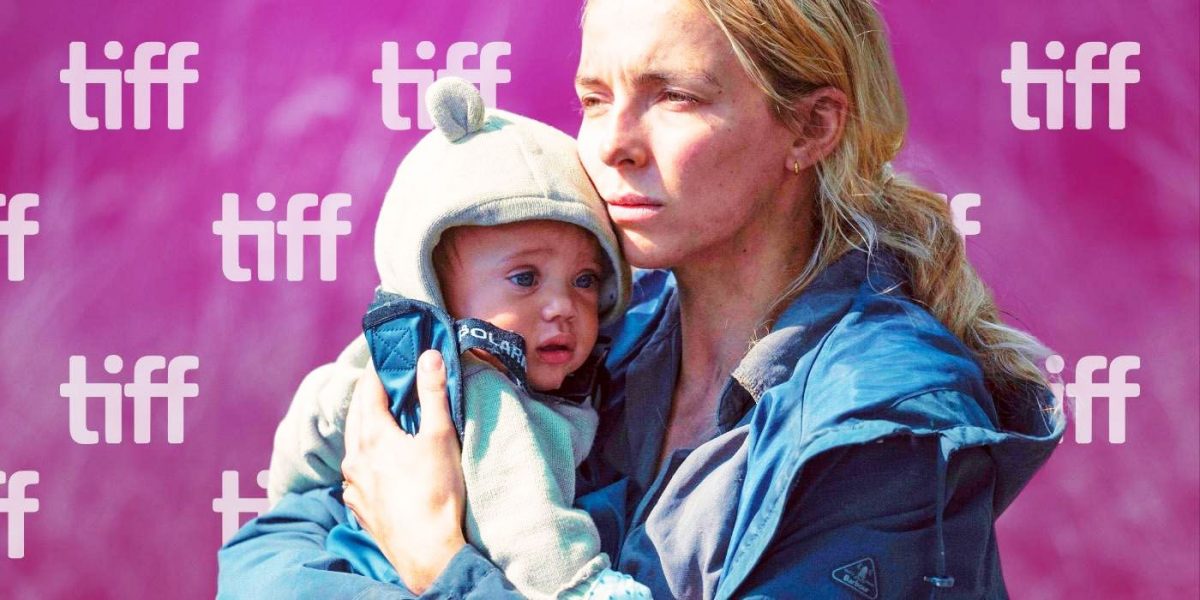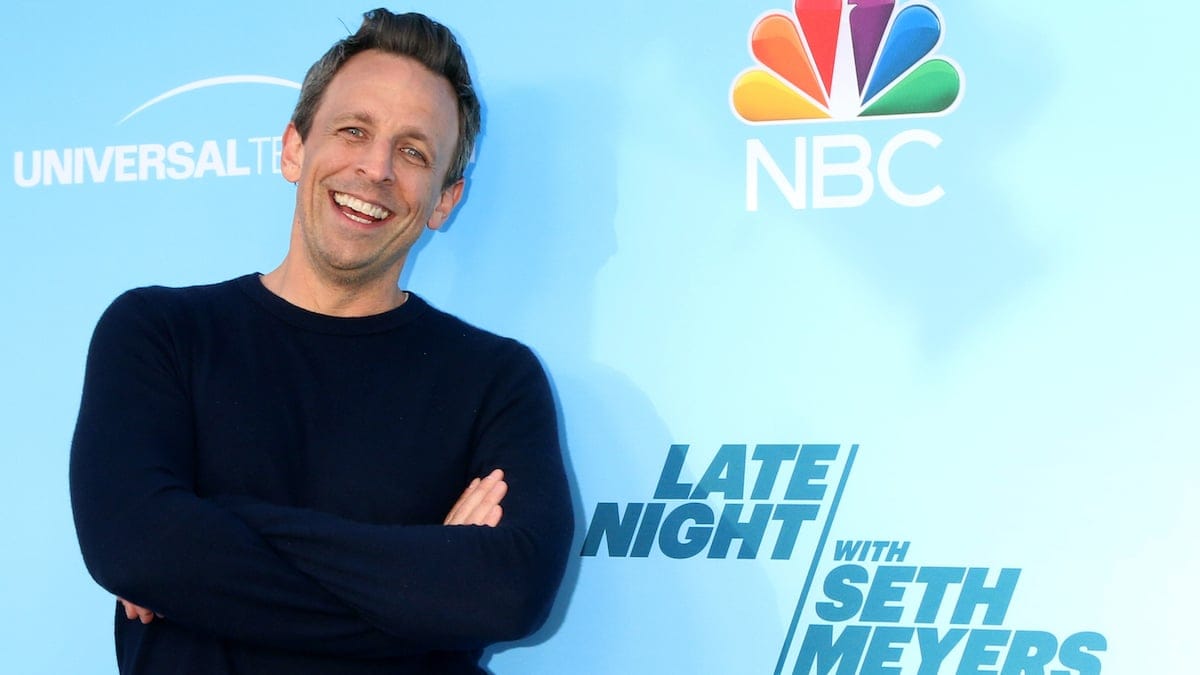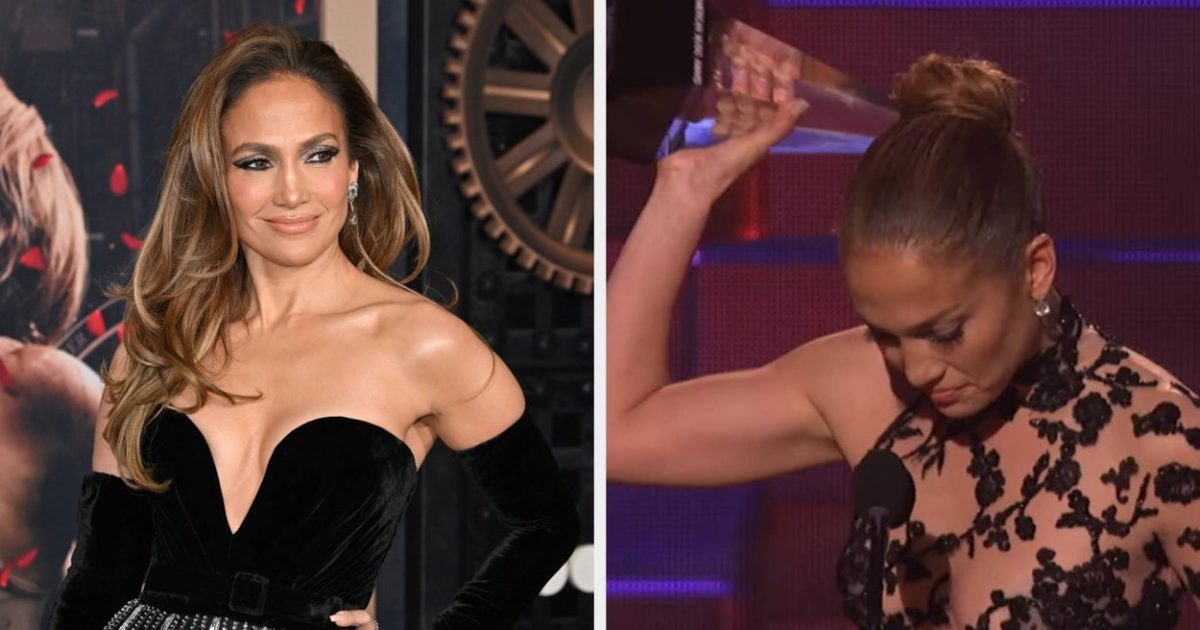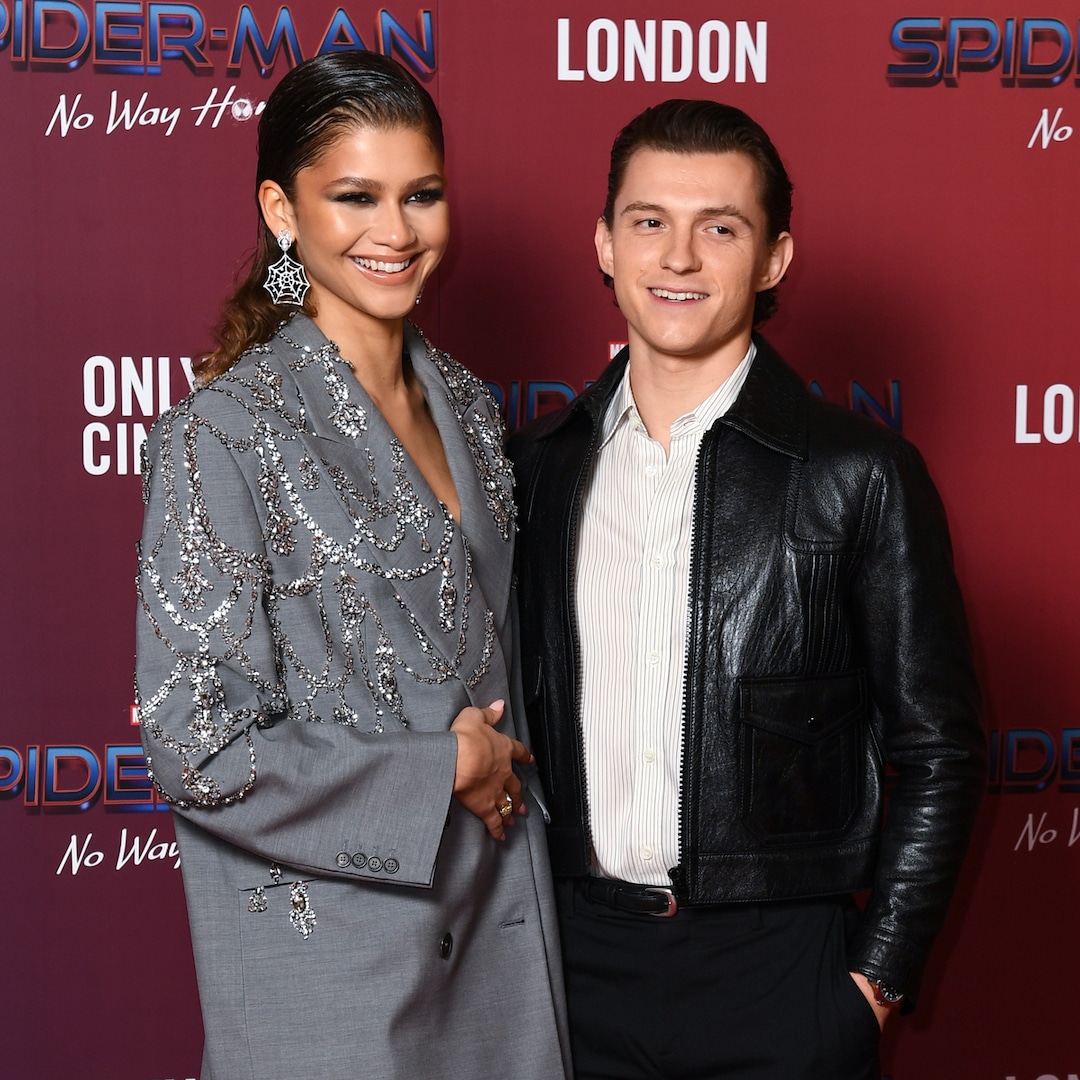
‘The End We Start From’ Director on Jodie Comer’s Early Newborn Baby Nerves
Sep 16, 2023
The Big Picture
Mahalia Belo makes her feature directorial debut with The End We Start From starring Jodie Comer as a new mother trying to find safety for her and her child after a climate change disaster in London. While at TIFF 2023, Belo detailed her collaboration with Comer and co-stars Katherine Waterston and Joel Fry. Belo also emphasized her hopes to continue making films that make the internal external.
I can’t say no to an apocalyptic blockbuster, but Mahalia Belo’s feature directorial debut, The End We Start From, is a much-needed revelation in the disaster movie genre.
Adapted from Megan Hunter’s 2017 novel, the film penned by Alice Birch sees a catastrophic flood devastate London forcing all residents to flee. Right at the same time, Jodie Comer’s character and her partner played by Joel Fry have their first child. The trio leaves the city and seeks refuge at his parents’ home in the countryside, but soon after arriving, it becomes clear that it’s going to be quite the challenge to outrun the flood and the resulting social collapse.
Shortly before The End We Start From’s world premiere at the 2023 Toronto International Film Festival, Belo visited the Collider media studio at the Cinema Center at MARBL to discuss her experience bringing the concept from page to screen. Belo revisited her collaboration with Birch, emphasized the great value of the trust Comer had in her as an actor’s director, explained why she was especially grateful for what Katherine Waterston brought to the production and loads more.
Hear it all for yourself straight from Belo in the video interview at the top of this article, or you can read the interview in transcript form below.
Image via SunnyMarch
PERRI NEMIROFF: One of your producers said that when you were approached for the project you read and loved the script, and you were very clear about what you wanted to do with it. When you read it, what were some of your top priorities, the things that you thought you could bring to the project that maybe no other director out there could have?
MAHALIA BELO: I read the book probably quite soon after my first child. I’m a mom. And it stuck with me. It deeply stuck with me. It sort of stuck in my gut. But I wasn’t sure whether it was adaptable if I’m honest, and then Alice Birch wrote this beautiful script. And also I think I knew that this film would have to be completely its own tonally, and it had to talk about the internal world of new motherhood and let the outer world mirror that in some ways, so try and flip it around in some ways. So for me, I wanted to talk about what it would be to be a hero in the really true and honest and earthy way. We really talked about that.
Some of the greatest real-world heroes are mothers, even without an apocalyptic scenario.
BELO: Yeah, it’s true, isn’t it yet?
I also wanted to talk a little bit about your experience working with Alice because another thing that I read is when you were developing the story together, someone noted, “our different modes of storytelling felt like a really interesting mix.” What were those different modes, and what was it about them that paired well together?
BELO: Alice is a really beautiful formal writer. When she writes dialogue or writes a moment in a scene, she manages to really find a truth by kind of turning it around on its head in some ways. She sets a scene and it’s very clean and clear, and I think I’m a little bit more lyrical. So between us, this kind of poetry mixed with a kind of coolness of Alice I think is – I really loved working with her, and I really love that dynamic and that kind of merging of two flavors.
These next questions might lean towards Megan a bit, but I wanted to ask about the idea of pairing the themes of motherhood that you’re exploring with an apocalyptic scenario. What is it about this flood and the climate crisis that you think enhances the points you want to make about being a mother?
BELO: That’s a very layered question, isn’t it? That’s a big question.
Big question. It’s like the whole movie!
BELO: It is the whole movie. I think there are so many elements of this. There’s this idea of tomorrow, about bringing people into the world and what you want from the world, but there’s also the shifts that happen when you become a new parent, that you yourself change. You are there for someone else, fathers and mothers, and you have to shift yourself to meet that and you see the world in a whole new way. So I felt like the parallels between parenthood and a world changing around you and having to kind of really navigate that was so kind of compelling.
It very much is.
Image via Photagonist at the at Collider TIFF Media Studio
The other question I had that leans toward Megan is about the names in the film. I’m always fascinated by naming conventions with characters. Just in general, I find it fascinating even when characters have more traditional names. Here, your main character is Woman and then every other character is represented by an initial. Why do you think naming the characters that way enhances the experience?
BELO: It’s something that happened in Megan’s novel. She did that. And I think it helped to focus the story so completely on what Woman was thinking, which is about the baby. But for us, we toyed with the idea, “Do we change it?” I spoke to Jodie about it and we decided not to. It made things slightly difficult. How many letters can you think of for various characters? But actually, what it ended up doing was it meant that the actors could bring their own character and they could name [them]. I think it adds a secret to the story, like, what is the character’s actual name? And a secret for an actor is gold, isn’t it? It’s like something they can hold on to.
I don’t want you to reveal their secrets, but do you know the names they came up with?
BELO: No! No, not at all. That’s theirs. It’s completely theirs. But also, I think it adds a universality to the whole thing.
Of course I must ask about your collaboration with Jodie. What is something about her as an actor and the way she likes to collaborate with her director that helped you exceed your own expectations for your work as the director of this film?
BELO: Jodie is outrageously courageous as an actor. And for me, one of the most beautiful things is I never felt – I don’t want to be generalized, but she gave me a lot of trust, which was such a gift for a director. She was a partner in this whole process from beginning to end, and journeyed with me through the whole thing. She, as an actor, is so clever. I mean, the way she deals with every scene and the babies, she’s just brilliant. She carried this character completely and so beautifully.
Because you just referred to her as being clever, can you pinpoint a moment on set when she brought something unexpected to a scene, and the scene and your plan for it evolved because of it?
BELO: There are lots of moments. The way I like to work is the script was so beautiful, but there were also moments of improvisation that would naturally happen, especially because there was a baby involved. And when I say clever, I mean present, and Jodie is incredibly present. So if the baby was doing something she would naturally react to the baby. But also there’s a gutsiness to what she does, and in this film she had to go to places and she wanted to do that. I think sometimes that kind of tenacity as an actor is being incredibly brave.
I want to go back to the trust idea. Can you give me an example of a time on set when you could feel the trust that she was placing in you and that’s the reason that the scene worked?
BELO: Jodie hasn’t had a baby, so a lot of the way through this whole journey, I had to – not just me but other people in her life – I had to make sure that the reality of that was held. And so she was looking to me quite a lot for that and trusting me that it was right. She gives birth at the beginning, and that’s a very particular experience, and for her to have to kind of create that authentically was really important to both of us, and I was there hopefully holding her through that.
That collaboration is stellar. You feel it while you’re watching the film.
Image via TIFF
I have to talk about some of your other cast members, too. I want to talk about everyone. I wish we had time for that today. To at least get to two people, can you give me an example of two actors you worked with on this film who have unique approaches to their work where it calls for something different from you as an actor’s director?
BELO: It’s so interesting, isn’t it? Because every actor has their own process. There’s something really interesting. So, Joel Fry is really, really present and really instinctive. He plays Woman’s partner in the story, he plays a character called R – the initials again. [Laughs] He’s quite a funny man. He’s hilarious when you’re around him. He’s absolutely hilarious, and he picks up on everything. So what was interesting, actually, which was really great is he is brilliant at improvisation. He’s completely there in the moment and would throw Jodie moments. So there’s a moment when we see them in the past at one point, and this date scene that happens – I don’t want to give anything away – but there were moments where you could just see her have to react to him being so charming and funny with her. [Laughs] That was great because they would have different modes of performing completely, but it worked.
And then who else? Oh yeah, Katherine Waterston!
She’s so good in everything!
BELO: When I first spoke to her I gave her this note that was just like, “If you had an argument in a shop, you’d be the kind of person who’d walked down the aisle holding both hands off, knocking everything down,” and from there, she just spun this character out that brought this life and this energy. I’m very thankful to her because I was very nervous about how that character – because it was so important. It’s such a big – it’s another romance in some ways.
Significant energy shift with that character, too. It’s not easy to make that character feel like she’s part of the same scenario, same film, but also add that new energy to the piece, and she nails it.
BELO: Yeah, she does. There’s one moment in the film, which was Katherine, where she saw on Jodie’s face that she had an eyelash and that was just Katherine being completely alive to the moment. She takes the eyelash off and says, “Make a wish,” and it was just this connection, the bond that they created through that was wonderful.
I do that all the time and seeing something little like that represented in a film like this – that’s a big contributor to what makes this whole thing feel real and grounded.
BELO: And connective! About connections between people, which is what I thought was really important.
A personal question because whenever I watch apocalyptic movies, usually they’re big blockbuster movies where, I hate phrasing it this way, but it’s almost fun to wonder, “Can you survive a zombie apocalypse?” This is a little different though. Having gone through the process of making the movie, has it made you yourself rethink how you might react to such a situation, or maybe is there a particular character that your thought process might align with the most in terms of how they react to the flood?
BELO: I don’t think we all know how we would react, but I also think that it’s happening and people are, and it’s potentially incoming in some ways, versions of this. I think we don’t know how we’ll react, but I hope that we will bond together and make these connections and move through.
Speaking of the current climate crisis, it’s been a high-priority talking topic for way too many years, but it does feel like that conversation intensifies more and more every single day. Given how much has changed even from the beginning of making the film to the end, are there any current events or actual reactions people were having to the climate crisis that impacted how you depicted the flood?
BELO: In this instance, we made sure that the point of view was particularly through the kind of subjective internal lens so that, almost, our flood was an internal view of the world, and so we related it more to motherhood. But I think the world is shifting around us and I hope it resonates and doesn’t terrify but adds some hope to the world in some ways as well.
When you are making a movie like this, you go in, I’m sure, planned to a tee so that you can get everything done, but when making any movie, things go awry. Things don’t always go according to plan, according to schedule. Can you give me an example of a specific day on set when things didn’t go to plan, you had to find a creative way to pivot, you did, and because of it, you found unexpected magic that makes the movie even better?
BELO: I feel like the film is a lot of that. It had to be organic because we had a baby on set pretty much in every scene. There’s something that happens when you have someone who doesn’t play ball but is so integral to the story that they’re acting in a completely different way. One of the key things that kept happening was, in rehearsal, we brought in a newborn baby and Jodie I don’t think had had much of a relationship with newborn babies particularly, and so her hand was shaking when she picked up the baby and so nervous, and it was perfect. At first, I was like, “Oh no!” [Laughs] But then I realized that’s exactly how I was when I held my first child. But what was annoying was, as she got through the film, she became really good with babies. [Laughs] So she would always put them to sleep. She’d just be rocking them and instead of having this baby that I wanted awake in the scene, it’d be nuzzling up. I’d say, “Stop rocking! Stop rocking!”
Given that, did you have the opportunity to film this in sequence?
BELO: Oh, no.
Yeah, I didn’t think so. That’s a luxury most movies don’t have.
BELO: No, sadly not. That would have been amazing. But because of the babies and the development, we did a fair bit of that. You see, the babies change every day. It’s fascinating.
Did you film with a real baby every single step of the way, or were there ever parts where you had to have a substitute?
BELO: You don’t want to give that away, but yeah. I mean, sometimes, but we would have a baby there. It would be because the baby had a nap. We would always have a baby available to us. So creatively it was quite important because it changed completely the performance. It was so instantaneous the reaction, and both Joel and Woman, how they reacted when the baby was there, it was its own thing to when it wasn’t.
It’s one of the first lessons I learned in film school, never make a movie with a baby. You made a whole movie with a baby! [Laughs]
BELO: [Laughs] For my sins.
I’ll wind down with two of my favorite questions. You make a really ambitious movie here very successfully. Having come out the other side, are there any goals you had or maybe new goals that have emerged that feel more within reach than ever because you accomplished this, because this movie exists?
BELO: Oh, wow. I mean, it felt like a birth, this film, for me. It’s my first feature. It’s been a dream since I was 10. So I think I’m just sort of sitting with this moment for a bit. Tomorrow we’re screening for the first time with an audience and I’m hoping to experience it all, take it all on board. After this, I don’t know. I want to just keep making movies and keep doing what I love and making the internal external.
I lie. I’m gonna squeeze in an additional question because I didn’t bring up this being your first feature. When you first realized you had a dream to make a feature film, what did it look like, and how does it compare to the film and the specific story and themes you wound up pursuing?
BELO: I think this is very true to what I imagined the film to be. It’s taken a while to get there. It’s been hard, but also beautiful. I have been making things before and slowly tuning in a voice that I would want to sit in a cinema, the church of the cinema, and see, so I feel like this is close to that reality. It’s close to my insides in some way.
This is something I always love asking about. It’s important for any filmmaker at any stage of their journey, but in particular, someone getting the trust from the necessary powers to make their first feature their way. Can you pinpoint someone or maybe a company on this production that you felt trusted you and trusted you to make this movie your way, and you hope to have more collaborations like that in the future?
BELO: Well, SunnyMarch trusted me so much, and Leah Clarke, their producer, was just my right-hand woman. She was amazing. And the BBC and the BFI, they championed me and I feel very thankful to them all. And Liza Marshall, as well, from Hera Pictures. I mean, it was a group of women who, when I set out to make this film in the way I wanted to make it, got what I was talking about and moved through that vision with me and held me through it.
Special thanks to MARBL Restaurant for hosting Collider as well as additional sponsors Sommsation, a top wine experience brand and online shop, and Molson Coors’ Blue Moon Belgian White as the beer of choice at the Cinema Center. Additionally, Moët Hennessy featuring Belvedere Vodka featured cocktails and Tres Generaciones Tequila.
Publisher: Source link
Jennifer Lopez Finally Understands Mi Gente Latino Meme
Jennifer Lopez Finally Understands Mi Gente Latino Meme Kicking off 2025, J.Lo is now promoting Unstoppable, a new biography drama in which she stars alongside Moonlight actor Jharrel Jerome. At the 2011 American Music Awards, Jennifer won Favorite Latin Artist…
Jan 11, 2025
Tom Holland's Dad Shares Insight Into Zendaya Engagement
Tom Holland became the greatest showman for his proposal to Zendaya. Just days after the Spider-Man actress turned heads at the 2025 Golden Globes with a 5-carat ring on that finger, Tom's dad... Disclaimer: This story is auto-aggregated by a…
Jan 11, 2025
Aubrey Plaza Issues Statement After Jeff Baena’s Death
The 40-year-old star and Jeff’s family issued a statement to People on Monday, where they called their loss an “unimaginable tragedy.”The Los Angeles County coroner’s office previously determined that Jeff died by suicide in his LA home. He was 47…
Jan 10, 2025
Jill Duggar’s Husband Clarifies Where He Stands With Jim Bob Duggar
Jessa Duggar (m. Ben Seewald)Jim Bob and Michelle's fifth child, Jessa Duggar, was born Nov. 4, 1992. Jessa met Ben through church and he began courting her in 2013—the old-fashioned approach to romance coming as a brand-new notion to a lot…
Jan 10, 2025











